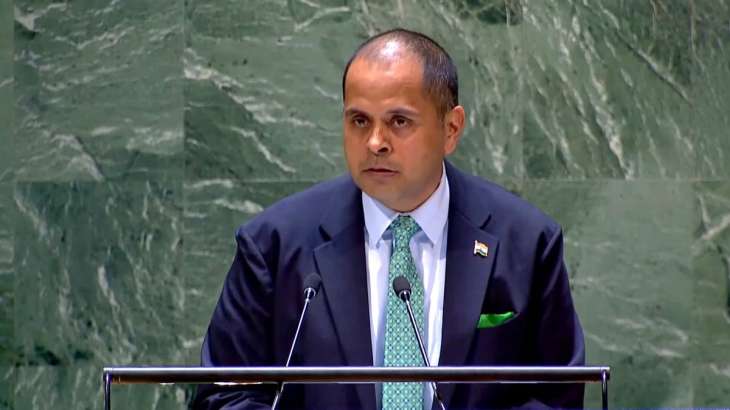
Prateek Mathur, Counselor in India’s Permanent Mission to the United Nations, on Wednesday reiterated India’s stand that the Union Territories of Jammu and Kashmir and Ladakh were, are and will remain integral and inalienable parts of India.
Addressing the ‘UNGA Plenary: Use of the Veto’, he said, “No country can deny this fact no matter how much misinformation, rhetoric and propaganda.”
“We meet today to acknowledge that a year has passed since the adoption of the ‘Veto Initiative’ by this prestigious Assembly. India’s position on the veto has been consistent and clear. The UNGA unanimously agreed in 2008 that all five aspects of UNSC reform, including the question of the veto, would be decided in a comprehensive manner and therefore could not be addressed in isolation of any one group.”
India and several African and Asian countries have been pushing the United Nations for veto reform for years.
What is veto in UN?
The United Nations Security Council consists of five permanent members – the United States, Russia, China, France and the United Kingdom – known collectively as the P5. Any member of these 5 countries can veto a resolution passed by the United Nations. However, the Security Council elects 10 members, who serve two-year terms on the council, but are not given veto power.
India’s stance on veto
Mathur said the veto resolution, though adopted unanimously, unfortunately, reflects a piecemeal approach to UNSC reform, thereby highlighting one aspect while ignoring the root cause of the problem.
“The privilege of using the veto has been vested only in five member states… This goes against the concept of sovereign equality of states and only perpetuates the mindset of World War II, the victor is the plunder,” he said. .
Either all nations are treated equally in terms of voting rights or new permanent members should also be given a veto. He added that the extension of the veto to new members would not, in our view, have any adverse effect on the effectiveness of the enlarged Council.
Mathur said, “We meet today to acknowledge that a year has passed since the adoption of the ‘Veto Initiative’ by this prestigious Assembly. India’s position on the veto has been consistent and clear.”
Furthermore, the use of the veto is motivated by political considerations, not moral obligations. As long as it exists, the member state or member states that can exercise the veto will do so despite moral pressure, as we have seen in recent times, he said.
“Therefore, we need to comprehensively address all five aspects of UNSC reform, including the question of the veto, through clearly defined timelines, in the IGN process. India remains committed to supporting any initiative that really advances the objective of achieving meaningful and comprehensive reform of key elements of the global multilateral architecture,” he said.
(with Annie input)